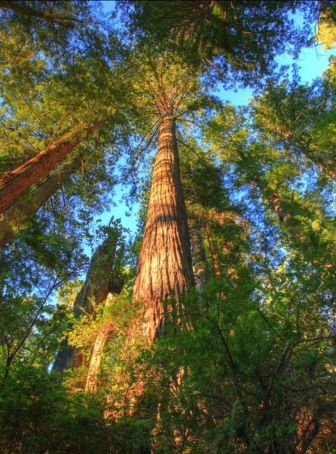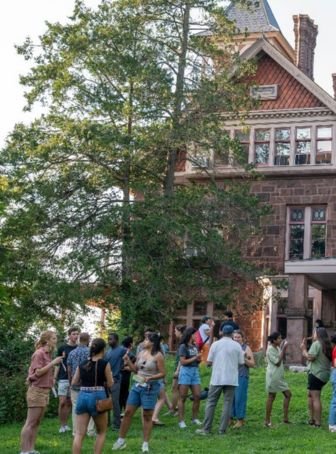
Sara Santiago
Without a doubt, tropical forests are home to some of the highest levels of species diversity on the planet, creating many opportunities to explore, posit questions, and learn about how that diversity has come to be and can be maintained. Dr. Liza Comita questions how hundreds of different species can occupy the same forest ecosystem, without a handful dominating and out-competing the rest for space above and below ground and for resources like nutrients. In order to examine this major question, Comita is honing into the early stages of plant growth, specifically the seedling stage when environmental variables – like light and water availability – and biological variables – the density and identity of neighboring plants – influence and drive seedling survival in the forest.
As part of a 5 year project funded by the National Science Foundation, Comita brought her research team to conduct an annual census of seedlings on seven sites along a very wet to dry rainfall gradient transecting the isthmus from the Pacific to Caribbean coast. Alongside Comita, YSE postdoc Luke Browne, YSE doctoral student Akshay Surendra, and recent YSE M.F. graduate Thomas Launer, and Panamanian research technicians Lourdes Hernandez and Roni Saenz collected data.
Each site consists of a gridded 1 ha plot, with a 1x1 m seedling plot in the center of every 5x5 m quadrat, for a total of 400 seedling plots per site. In each seedling plot, all seedlings >=20cm tall and <1cm DBH were tagged, mapped, and height and number of leaves recorded, along with codes about the plant’s condition (such as if the main stem is broken, if it has substantial herbivore damage, etc.). These seedling plots have been censused annually for the past 5 years, and the new data collected will contribute to a better understanding of temporal dynamics at these sites, including effects of dry season severity (i.e., drought).
Aside from supporting her lab on campus, Comita is well known for hiring research field assistants from Panama, mentoring the Forest School’s students during a field ecology trip in Panama, and is highly respected at the Smithsonian Tropical Research Institute in Panama.
For more information on Dr. Liza Comita, please find her bio, course offerings, and CV here. Comita is also a 2019 recipient of NSF’s Faculty Early Development (CAREER) Program, providing her a $620,000 grant to conduct this research and integrate teaching into her fieldwork.







